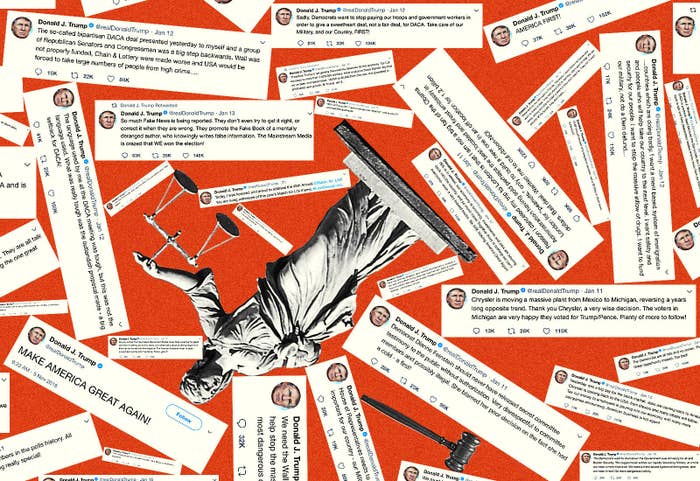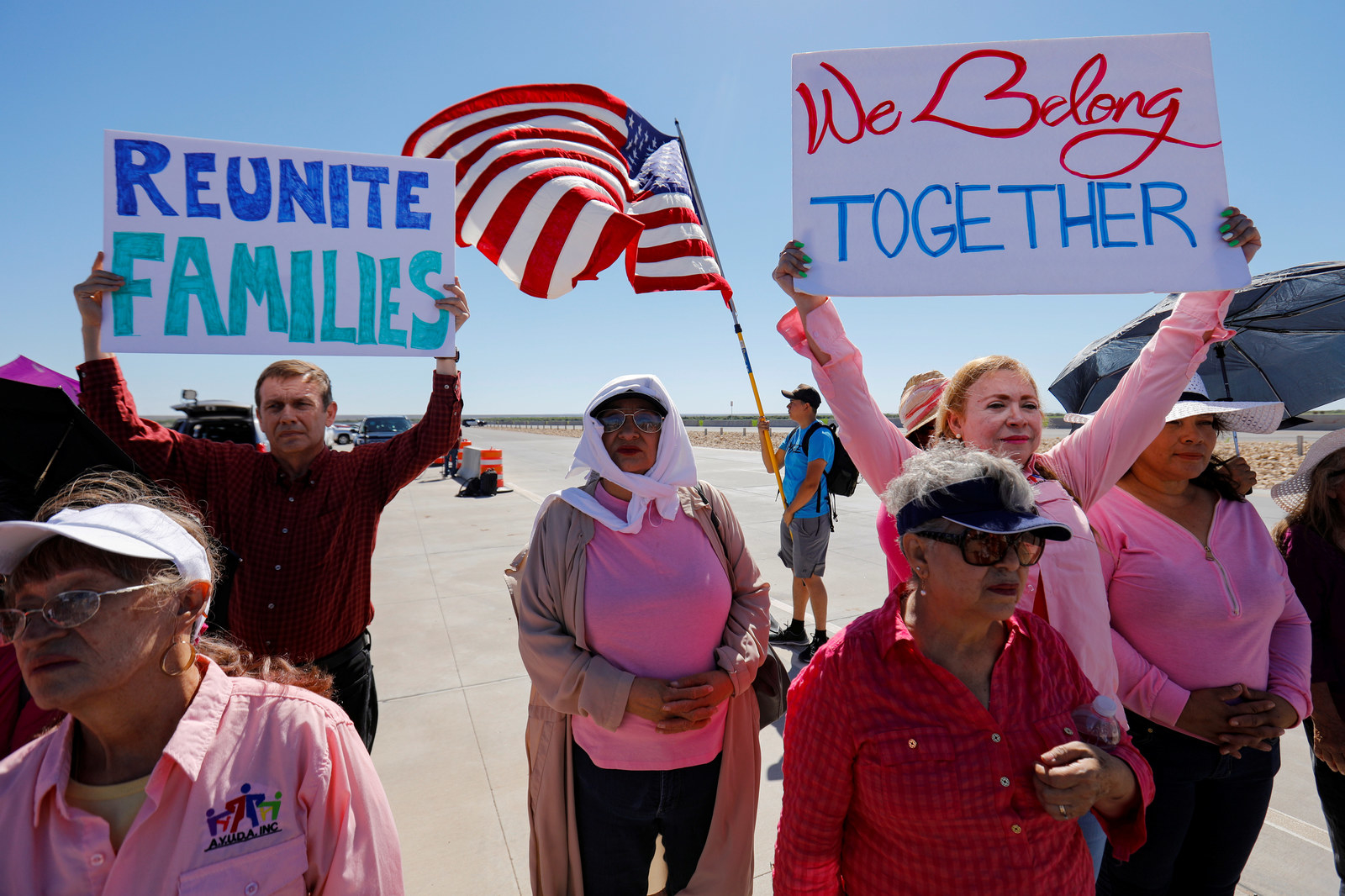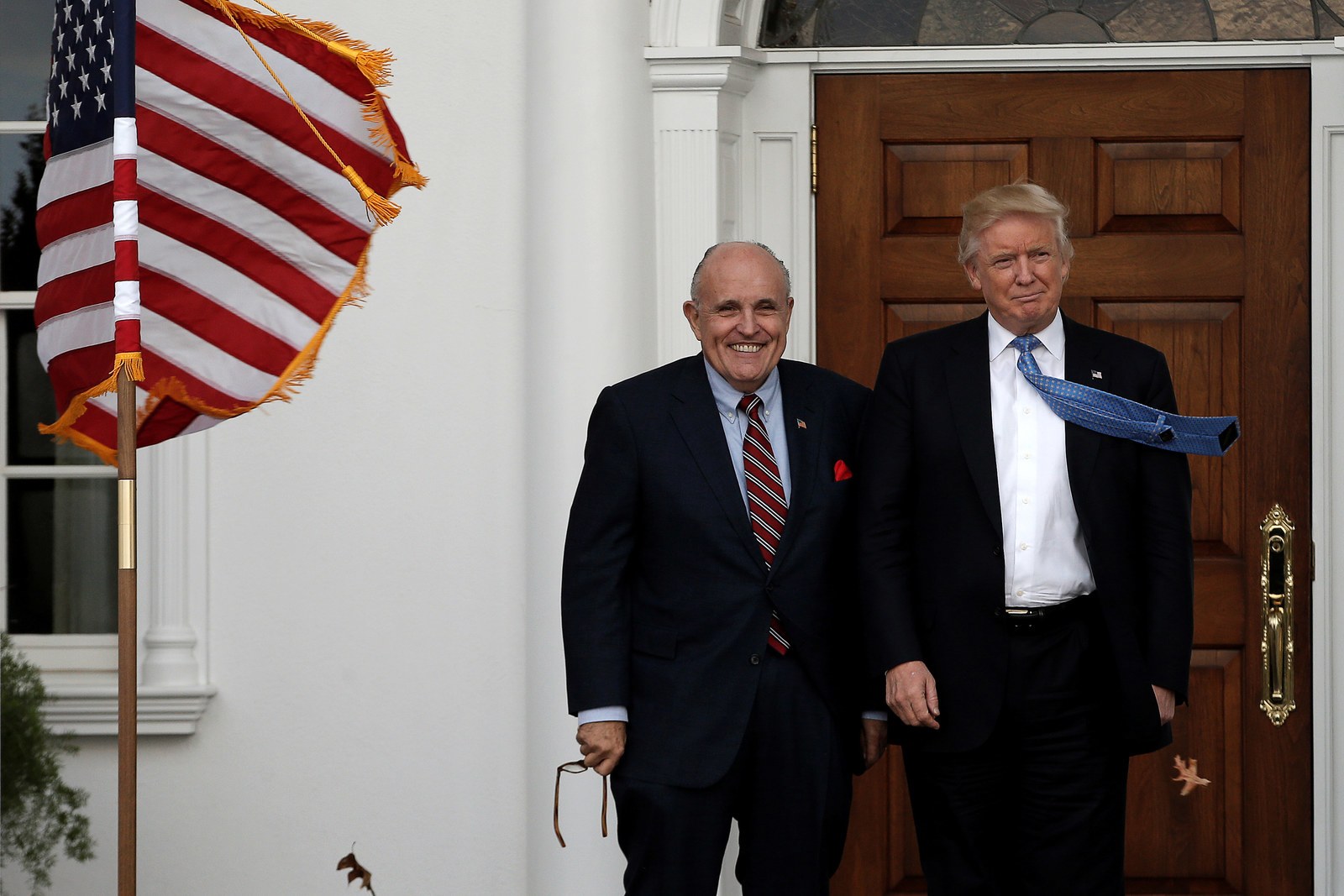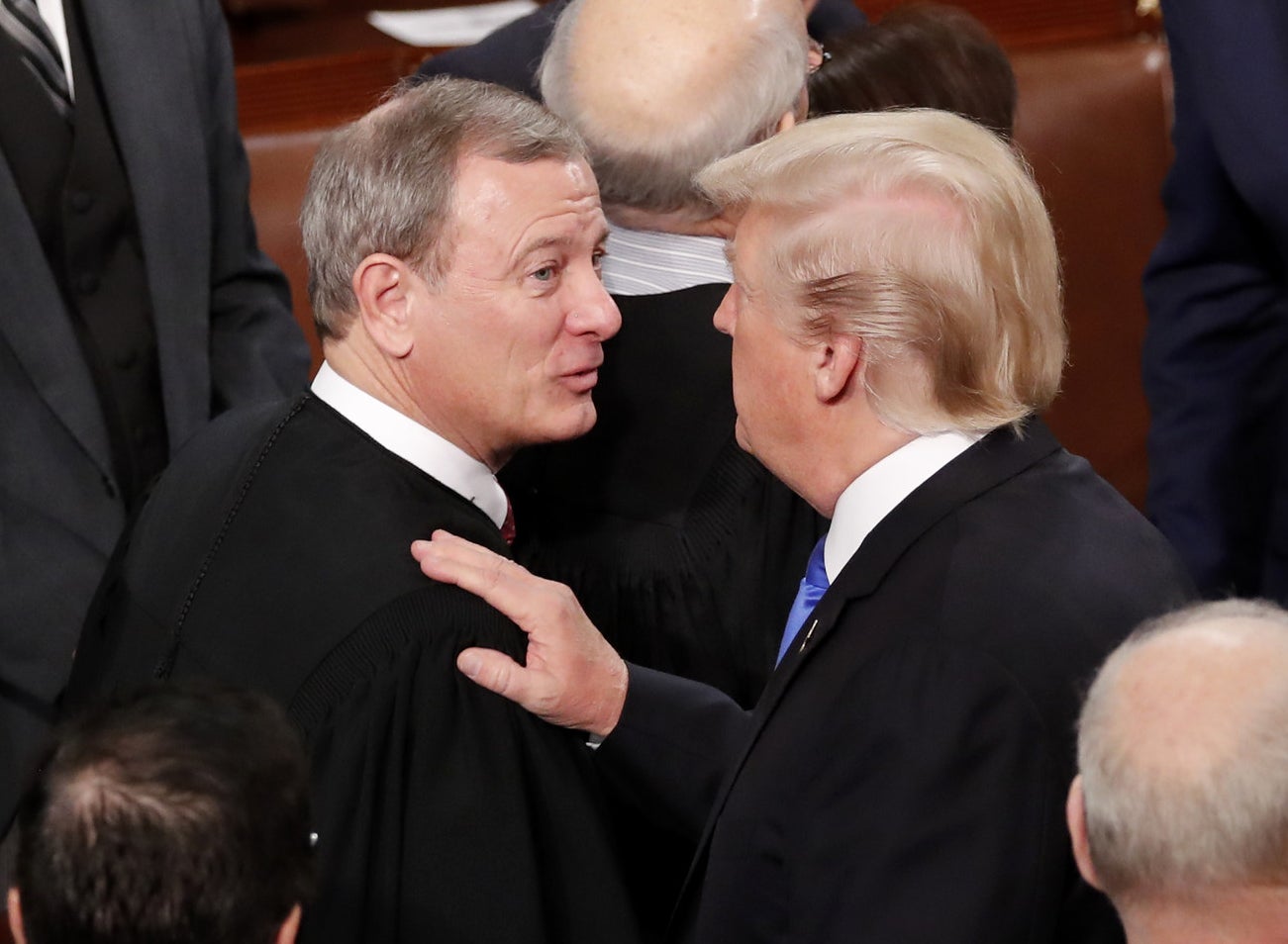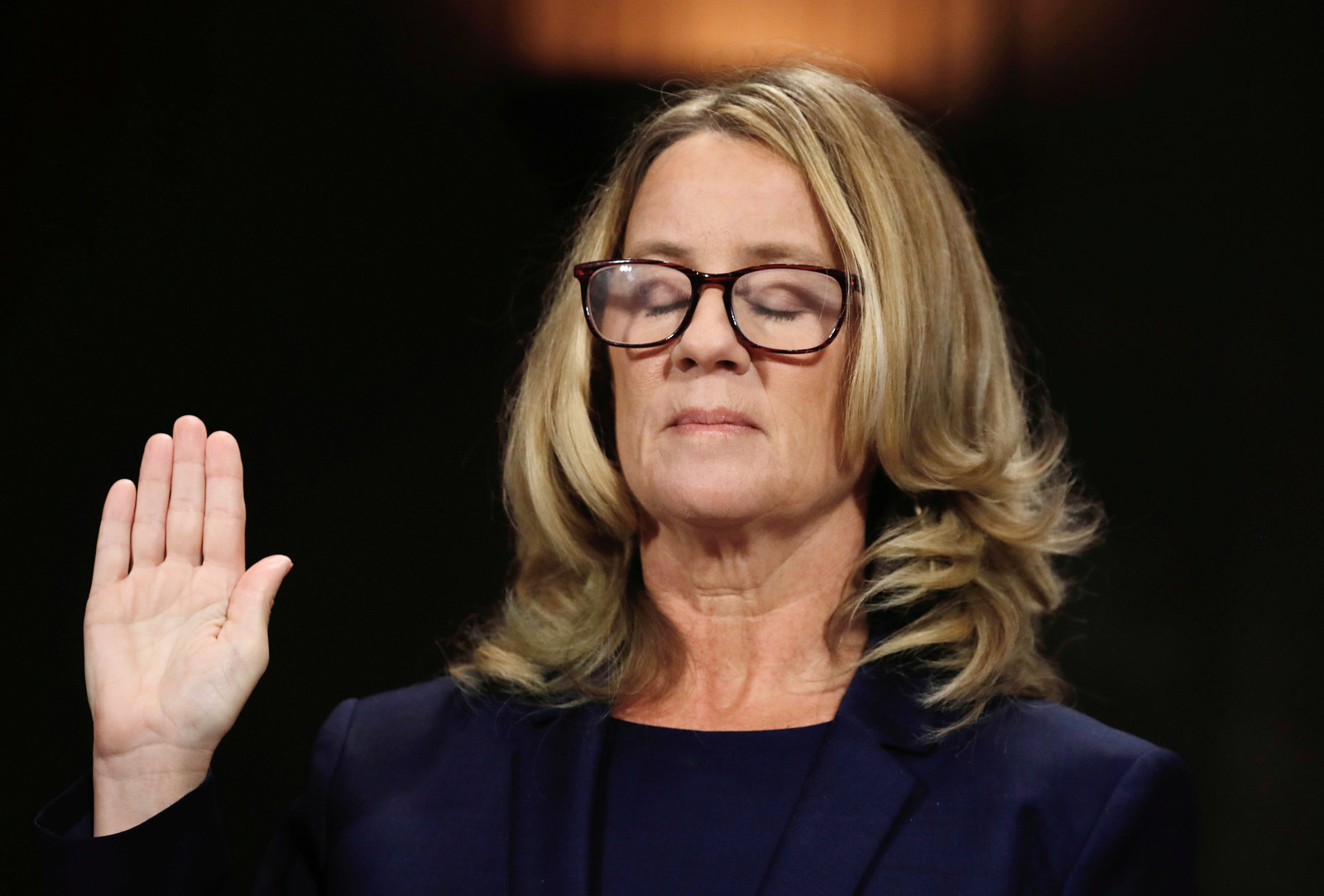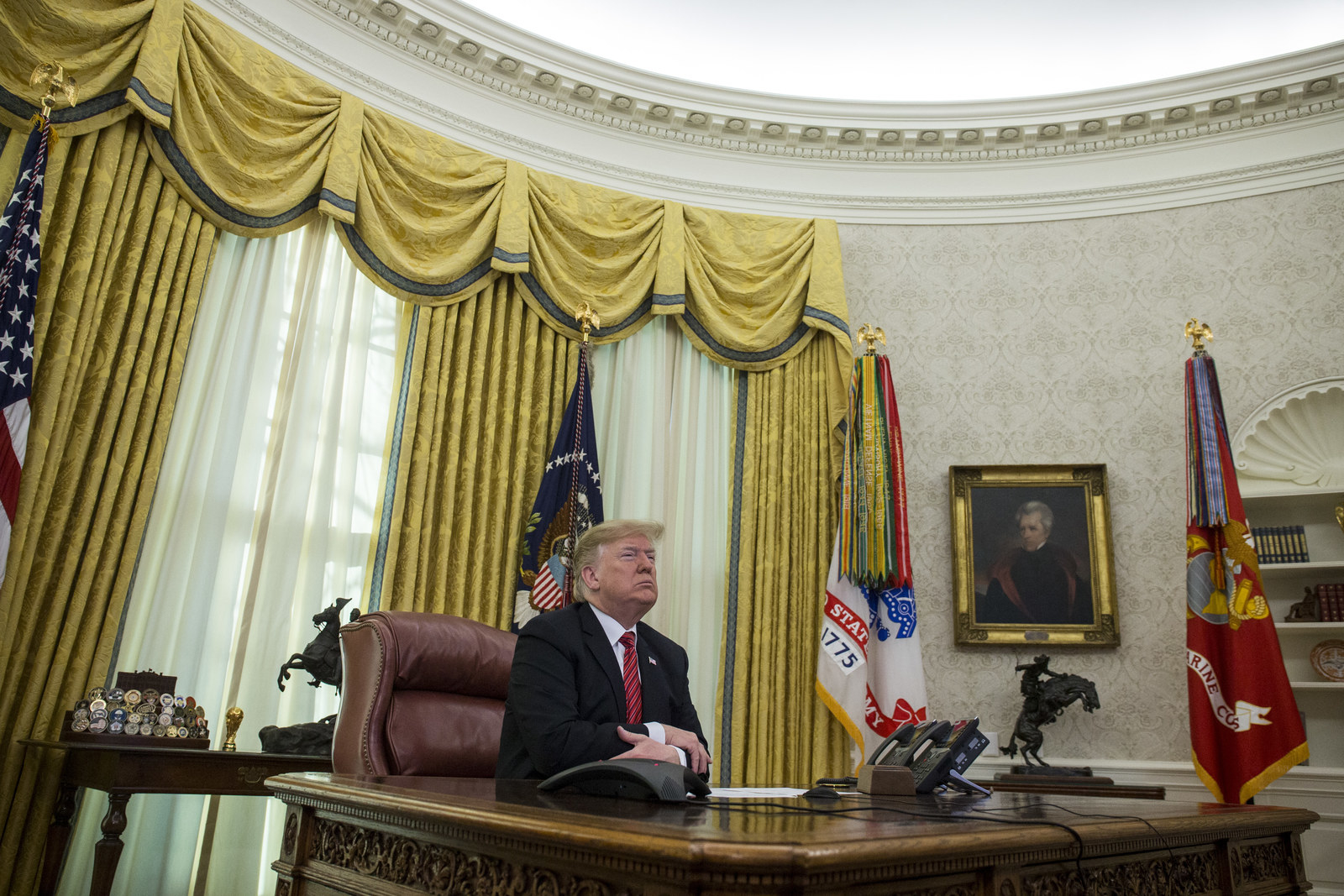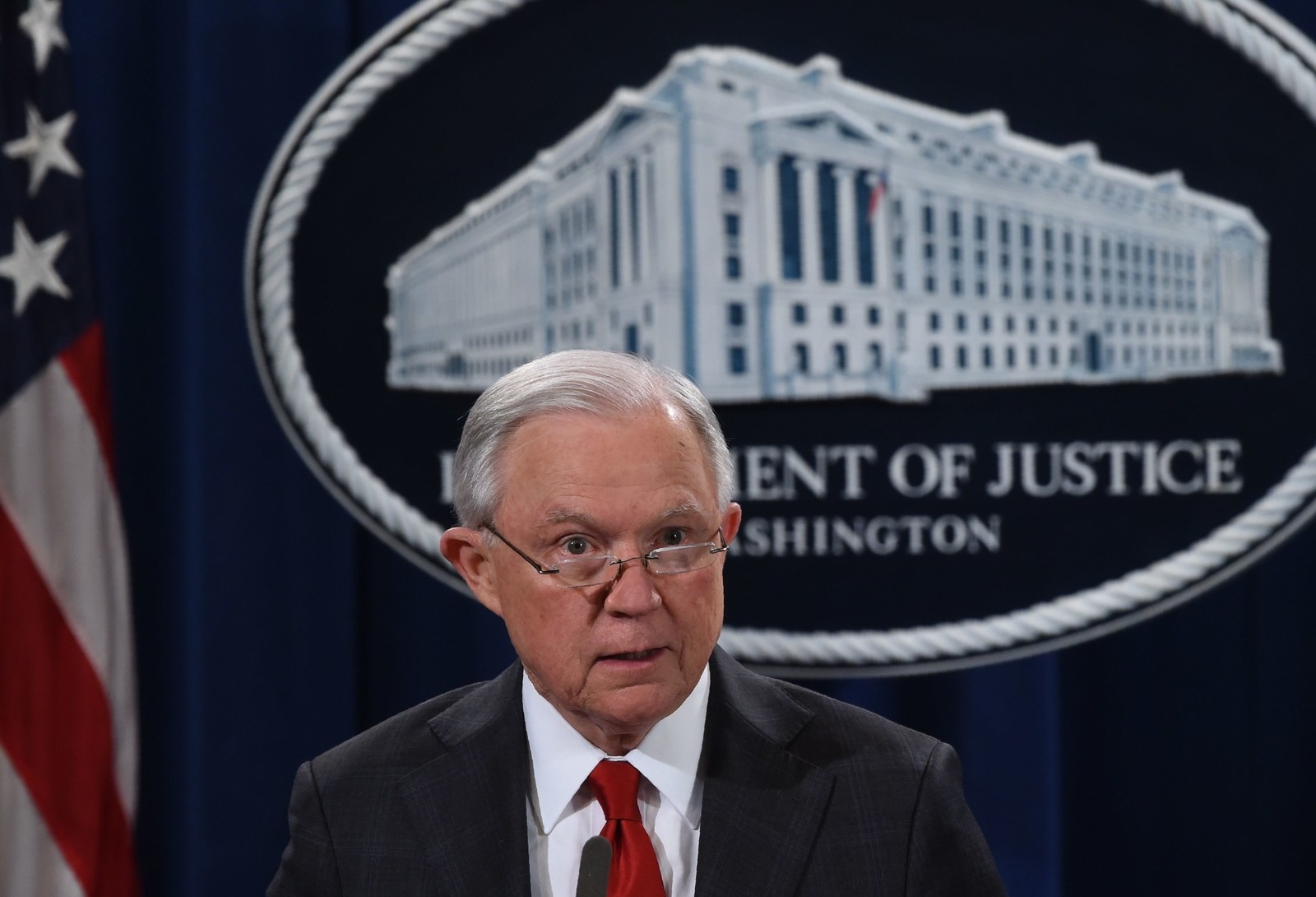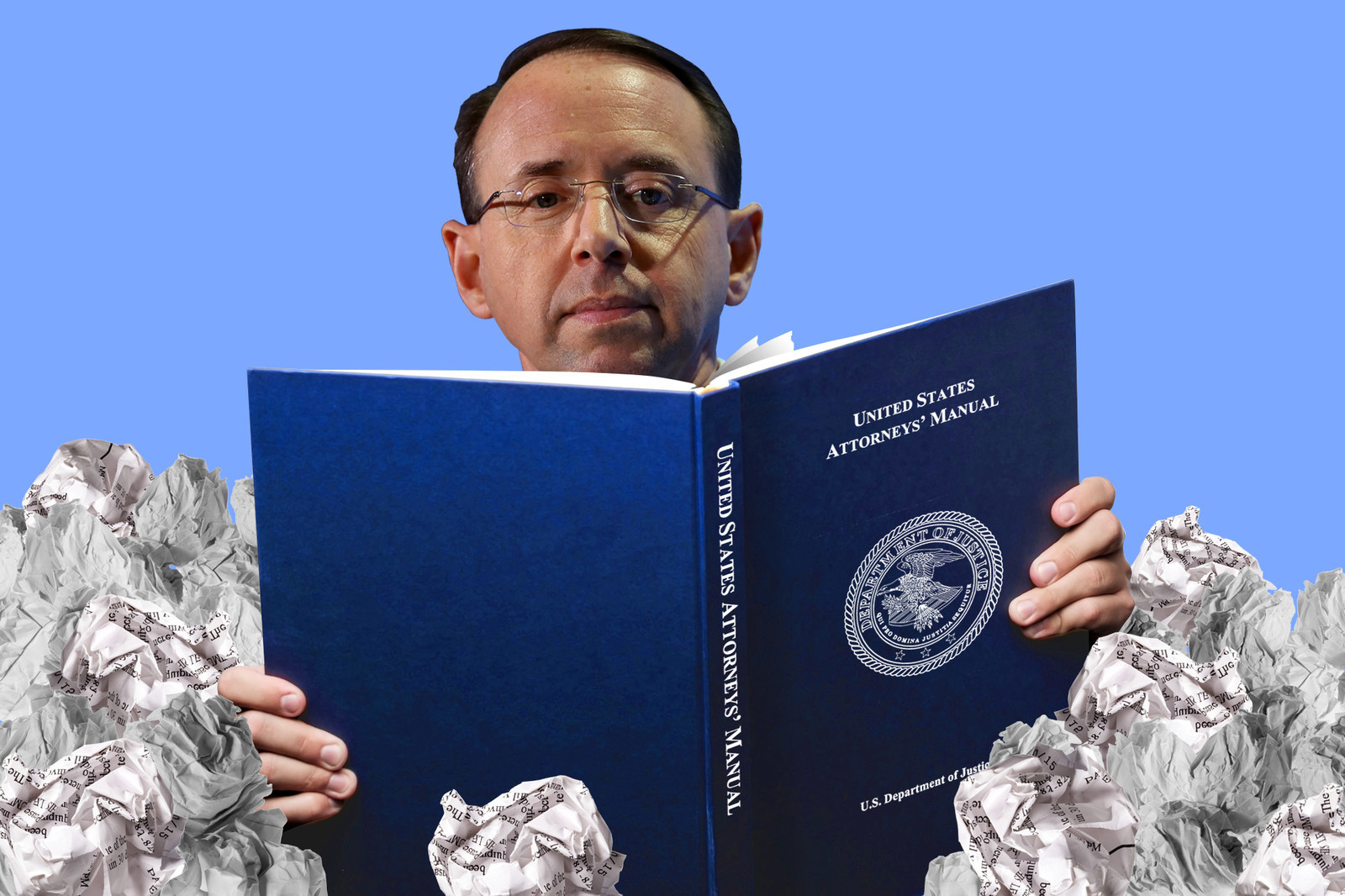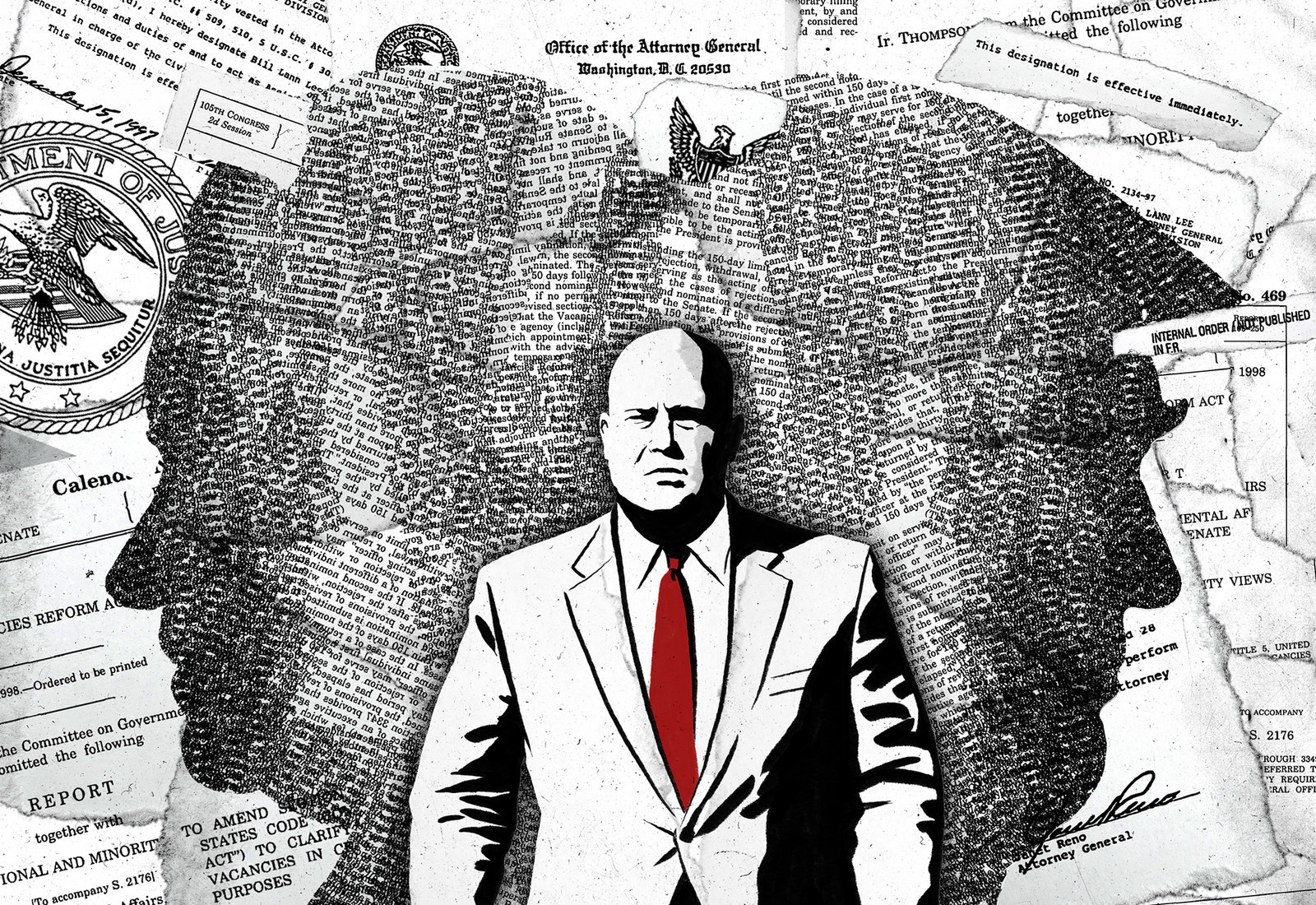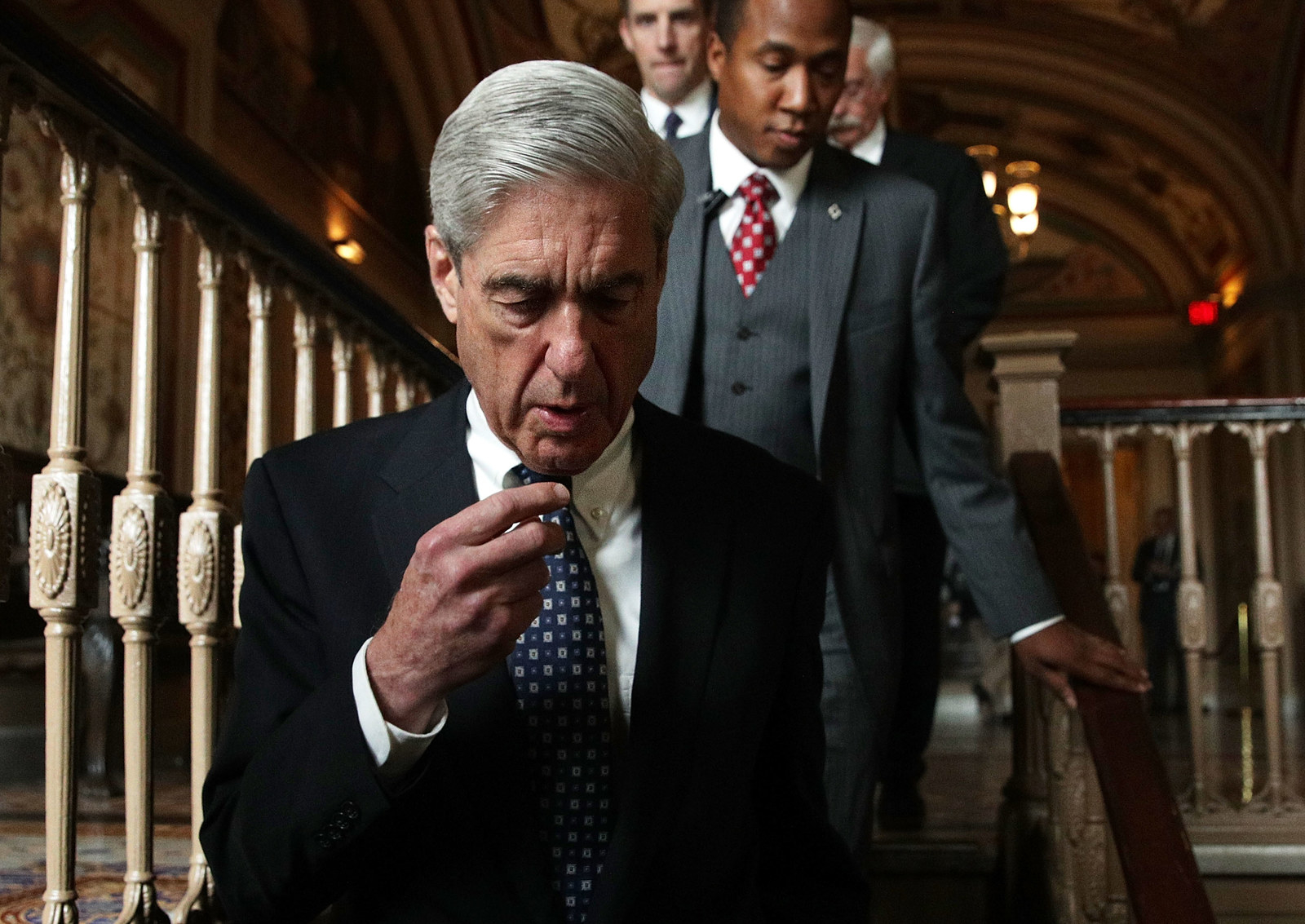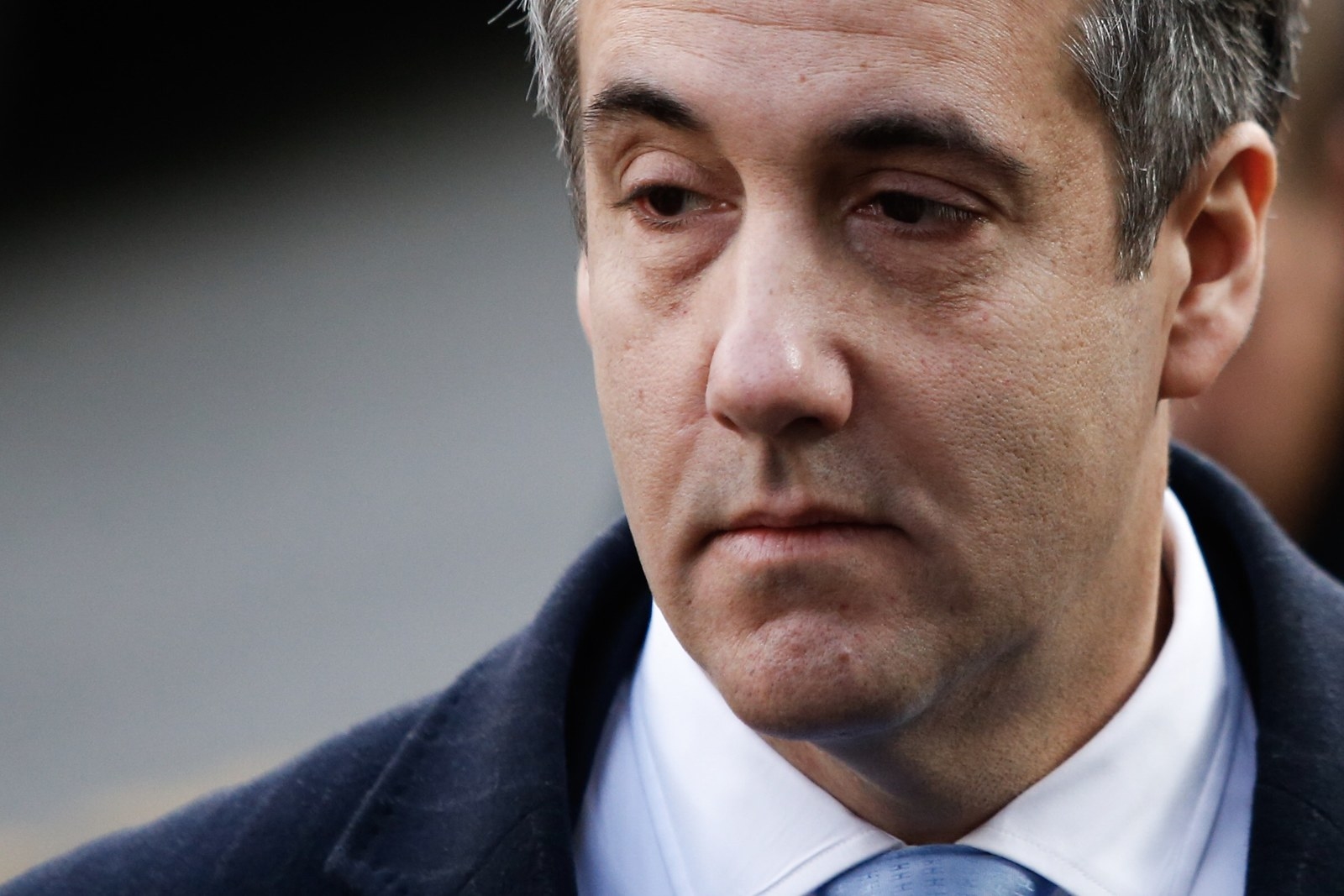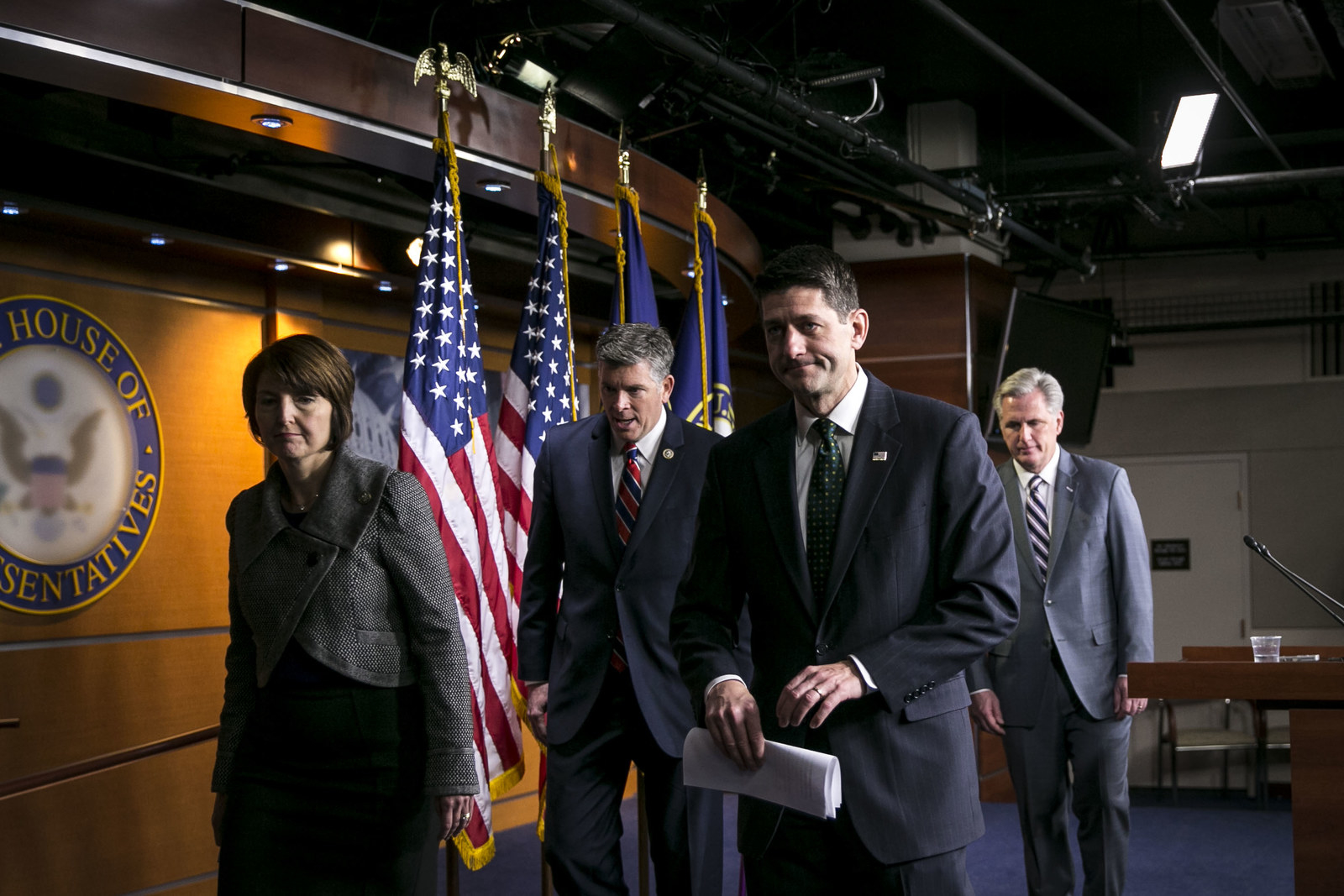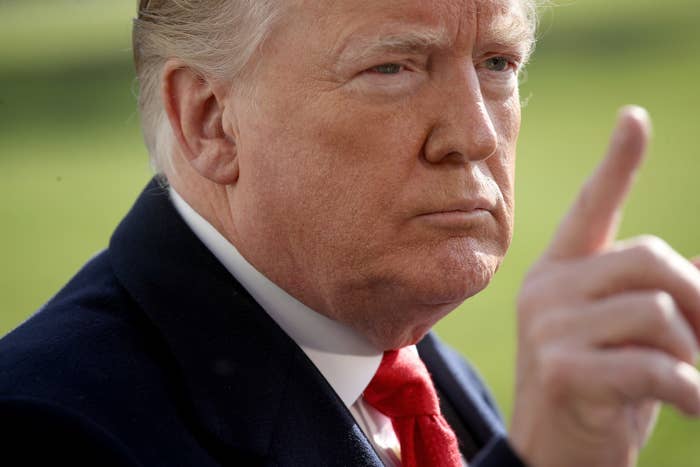
One of the consistent themes of 2018 was the centrality of the US legal system to nearly every major story that took over the news — stories that highlighted the importance of, consequences of, stability of, and fragility of the system and its institutions.
In short: President Donald Trump is testing the limits of the system, and that's tiring.
The storylines touched a dizzying number of issues: Trump and his efforts to enact harsh immigration policies, even without congressional action; judicial nominations and how Chief Justice John Roberts is dealing with the Trump era; former attorney general Jeff Sessions, his near-constant battle with Trump, and the fallout from his forced departure; and the special counsel’s investigation of Trump and his allies, including the president's onetime campaign manager and his longtime personal lawyer.
In the midst of all that, November also brought the midterm elections — and their own legal questions about the stability of our systems.
Here's a look at the year in legal news through some of BuzzFeed News' biggest and best coverage of what's happened.
President Donald Trump
As always — as it always was? — the president's tweets have played an outsize role in announcing major policy and personnel changes in his administration. Despite the words he tweeted, we learned in 2018 what we had suspected: Some of his biggest moves take those officials who would be in charge of implementing them — like the transgender military ban — completely by surprise.
Trump's policies, particularly those affecting immigrant populations, continued to face significant challenges in 2018. The largest issue — the “zero-tolerance” policy that led to children being separated from their parents at the border — caused a rare reversal from Trump, although litigation and the fallout from the policy continue to linger. The Trump administration's efforts to end DACA, the Deferred Action for Childhood Arrivals program, to include a citizenship question on the census, and to bar many people crossing the southern border from seeking asylum — all strongly opposed by immigrant groups — also faced challenges throughout the year and across the country. Trump did get some wins: The Supreme Court upheld his third effort to enact a travel ban, and a judge issued a ruling in December that would end Obamacare if upheld on appeal.
The president's lawyers have been a side story of the year, but the message the shifting sets of White House and outside lawyers have sent comes back to the underlying theme: Trump is testing the limits of the system, and that's tiring — including for the lawyers protecting his interests. Trump isn't only facing the special counsel's investigation and challenges to his policies, he's faced challenges relating to his personal conduct before he took office — the Stormy Daniels saga and its far-reaching fallout — and to the unprecedented question of whether some of the money his company, the Trump Organization, is making now means that Trump is violating the Constitution's prohibition on the president receiving “emoluments” while in office.
The Courts
Chief Justice John Roberts took on an outsize role in 2018, as the retirement of Justice Anthony Kennedy pushed Roberts into the position of being the presumptive middle vote on the court in addition to being its administrative head — and as Trump's continued lashing out at federal judges who ruled against him led Roberts to issue a rare public statement rebuking the president.
The nomination of Brett Kavanaugh to the Supreme Court was expected: He was a former Supreme Court clerk and White House lawyer who had served as a judge on the US Court of Appeals for the DC Circuit. At the end of his initial confirmation hearing, it appeared his confirmation was on track. Then Christine Blasey Ford came forward with her allegation that Kavanaugh had sexually assaulted her at a party while in high school. The next weeks were a draining period that included the interminably long day of Ford's emotional morning and Kavanaugh's angry afternoon of testimony. After it all, though, Kavanaugh was still confirmed — by the closest vote for a successful Supreme Court nominee in more than a century.
Even as the Kavanaugh hearings proceeded, many lower court federal judges were being confirmed — conservative nominees supported, by and large, by the Federalist Society and pushed through the Senate by Majority Leader Mitch McConnell and Judiciary Committee Chair Chuck Grassley. Although Trump has had some bumps along the way, 2018 came to a close with him having confirmed as many appeals court nominees as Barack Obama had confirmed in his entire first term.
The Department of Justice
The tenure of former attorney general Jeff Sessions was both remarkably effective and appeared constantly to be moments away from ending. Ultimately, Sessions made it to the midterm elections before being forced out the next day. Trump's anger at Sessions for recusing himself from the Russia investigation never really subsided, but Sessions also was the most adept cabinet member at implementing Trump's vision for the country. From implementing harsh immigration policies and anti-LGBT moves to advancing religious liberty and tough-on-crime efforts, Sessions pushed the Trump administration forward more aggressively than anyone else in the Cabinet. He also advanced his own strain of attacks on federal judges, focused on opposing nationwide injunctions issued against Trump's policies.
More people know who Deputy Attorney General Rod Rosenstein is than likely have ever known who the No. 2 at DOJ is. As the overseer of the Russia investigation during Sessions' tenure at the helm of the department, Rosenstein has suffered attacks from Trump and impeachment threats from a handful of House Republicans. He's pushed back at moments and remains in his Senate-confirmed role as the year comes to a close — even as the confirmed people above him and below him at DOJ have left, replaced by “acting” officials serving in their role with no Senate confirmation.
Trump announced that Sessions was leaving the Justice Department by tweeting that Matthew Whitaker, Sessions' chief of staff, would be taking over as acting attorney general. Whitaker, a former political candidate who had previously expressed skepticism of the special counsel's investigation, almost immediately faced questions about his new role — including whether the appointment was even constitutional. DOJ has fought back thus far in court, though, and Whitaker remains in the job as acting attorney general — and has decided not to recuse himself from overseeing the special counsel's investigation — as 2018 comes to a close.
The Mueller Investigation
Special counsel Robert Mueller's investigation into the Trump campaign's links to Russian efforts to influence the 2016 election was a throughline for the year — despite, as many Trump defenders will say, there having been no charges that anyone involved in the Trump campaign attempted to help Russia's efforts.
As July came to a close, Paul Manafort, Trump's onetime campaign manager and a longtime Republican DC lobbyist, faced the first trial of Mueller's investigation. Although the charges themselves — and conviction on several of those charges — didn't relate to the 2016 campaign, later fallout from other charges faced by Manafort and allegations that he continued to lie to federal prosecutors even after agreeing to cooperate with them has raised questions about where this strand of the Mueller investigation is headed going into 2019. (Manafort's longtime business partner, Rick Gates, pleaded guilty to multiple charges and has been cooperating with prosecutors most of the year.)
Trump's longtime, but now former, personal lawyer, Michael Cohen, is not formally cooperating with federal prosecutors — and has been sentenced to three years in prison — but Mueller has made clear in court filings that Cohen has provided substantive information to the special counsel's office in multiple areas of its investigation. The turnaround from Cohen, who has admitted to arranging payments to women to keep their allegations of affairs with Trump hidden from the public during the campaign, could be significant — given his knowledge of and connection to Trump's Russia ties and acknowledgment that he lied about them.
But there was much more. Early in the year, there was the indictment of Russian individuals and entities allegedly involved in the "troll farm" effort to influence the 2016 election through social media. In the summer, Mueller's office went after those who allegedly hacked the emails of Democrats, including the Hillary Clinton campaign. There was George Papadopoulos, the former foreign policy adviser to the campaign, who spent two weeks in prison after pleading guilty to lying to federal agents about his Russian contacts. Michael Flynn, Trump's onetime national security adviser who also pleaded guilty to lying to federal agents about his Russian contacts, remains in a cooperation agreement with the federal government and — after an unusual day in court — is yet to be sentenced.
And, outside of Mueller's investigation, there was Maria Butina. Allegedly connected to Russian intelligence, Butina infiltrated the National Rifle Association and other conservative groups and was charged by DC prosecutors. By December, she had pleaded guilty — although it remains to be seen what the effect of that plea will be and whether her case will connect to Mueller's efforts.
The Midterms
The 2018 election did not end on Election Day, with disputed outcomes in several states — but primarily Florida — leading to recounts and litigation. Lawsuits raised questions about how older people and those with disabilities fare under rules passed by lawmakers claiming an aim of stopping voter fraud — and, in a particularly Florida twist, counting continued long after the results were decided.
In North Carolina, a close congressional race took on added focus when allegations were made that voter fraud involving the handling of absentee ballots might have handed the race to the Republican. Come 2019, the race — and who comes to Congress — could turn into a legal question courts need to face.
Despite all of the complications and litigation of the past two years, Trump was operating in an environment where his party had control of all of the political branches of government. That will change in the new year when Democrats take over the House majority and Rep. Nancy Pelosi retakes the speakership, and some of the tools Democrats are likely to use will be the very ones Republicans fought for and then used when Obama was president.

